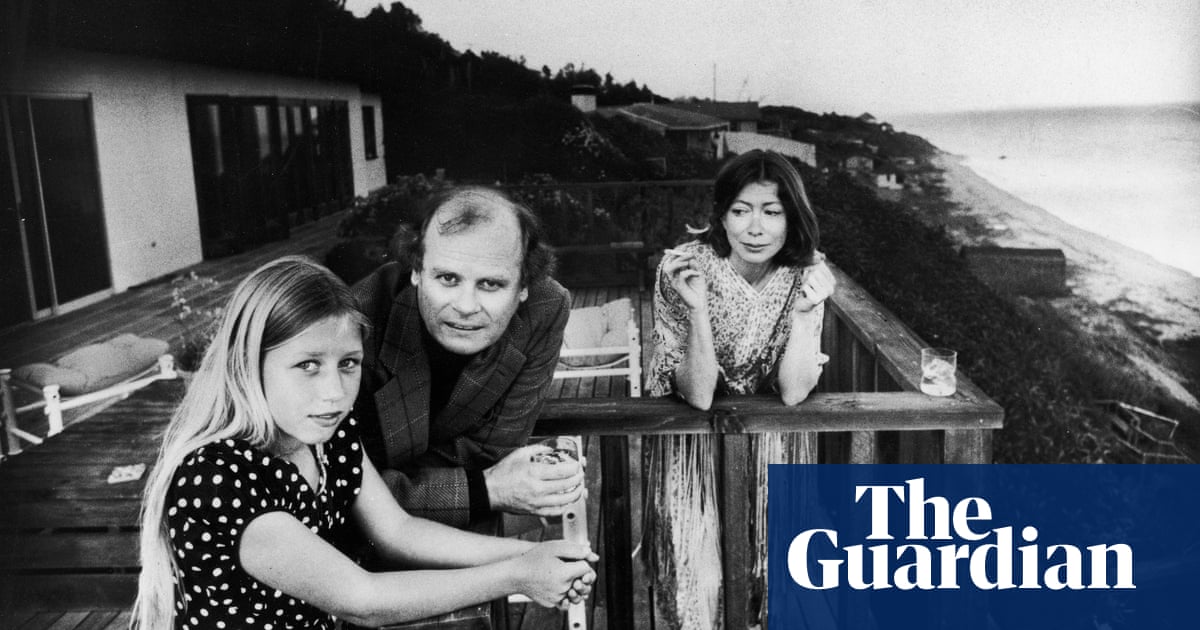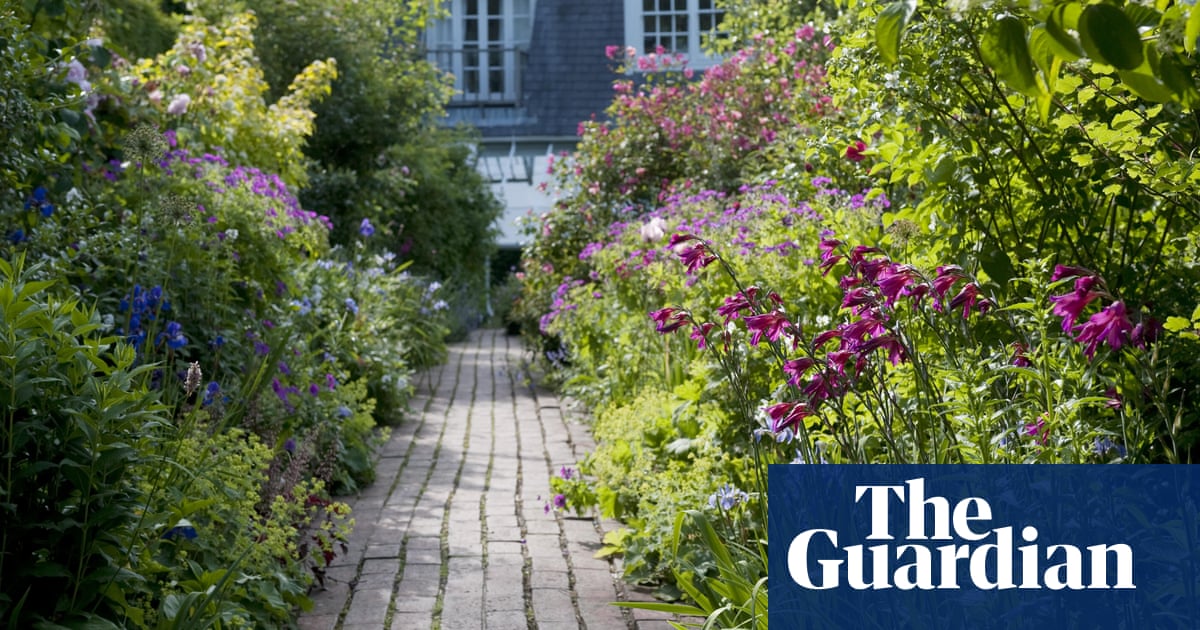I moved to Somerset in 2009, from a home in Wales between Bannau Brycheiniog (the Brecon Beacons) and the Black Mountains. The change took me closer to London and rid me of painfully long train journeys, but I really missed the landscape – and, more specifically, walking around it. The little I knew about my new home county was mostly centred on two attractions: the Glastonbury festival and Cheddar Gorge – that deep topographical crack that draws thousands of tourists to caves, overpriced cheese and the kind of shops and cafes that make it feel like a mid-level English coastal resort, without any sea. It didn’t seem to offer much of a substitute.
What I didn’t know about was the other 70-odd square miles of the Mendip Hills, all craggy outcrops, dry-stone walls, waterfalls and dizzyingly beautiful views. After I moved, the weekly walks I eventually started doing with my two kids took us to this part of Somerset again and again. And they still do, not least in the winter. The scenery is, of course, not nearly as spectacular as the landscape I’d left behind, but replete with its own charms: faint echoes of the Lakes and Yorkshire Dales, and walks that perfectly suit the cold months. Here, a proper outing can be done without being overly arduous, and if the weather doesn’t turn too hostile, a day outside can deliver a lovely cosiness: the landscape is friendly and comforting, rather than challenging.

Start and finish Cross, Somerset
Distance 5 miles
Time 3-3½ hours
Total ascent 286 metres
Difficulty moderate
OS map with GPX track of the route
My son James, who is now 18, is autistic. In common with a lot of neurodivergent people, he has a deep connection with the outdoors, and a seemingly insatiable love of walking. Some of this, I think, is to do with hills and mountains, and the sensory exhilaration they provide: when he was little, he would greet any downhill section of a walk with a euphoric, high-velocity sprint, which seemed to approximate the feeling of flying. Now, he is an enthusiastic and determined hiker.
With his younger sister, Rosa, we have seen just about every corner of the Mendips. We regularly visit the village of Priddy, with its huge green, gangs of visiting cavers, and bronze age burial mounds. Ebbor Gorge is another wondrous gap in the hills – in this case, unsullied by roads – which can be included on routes that start and end in the small cathedral city of Wells. Walks close to Cheddar might begin among the madding tourist crowds, but you can soon find yourself amid open fields, woodland and paths that wind around its clifftops.
But our favourite place is the uplands of Wavering Down and Crook Peak, and a five-mile up-and-down loop that starts and finishes in the village of Cross, little more than three miles from Cheddar – and, it is worth pointing out, less than an hour’s drive from the centre of Bristol. Looking back, this was the first halfway serious hill-walk the three of us ever did, which opened the way to the week-long trails we have done over the past three years (Hadrian’s Wall was the last), and regular hikes of 10 miles or more.

Our first visit here was when James was eight and Rosa had just turned six. My dad, a former mountaineer whose lifelong love of walking defies his age, last accompanied us when he was 81: the dateline on the photos I took on my phone was 28 December 2017 – a sunny, blue-skied day, by the look of it, which was also my 48th birthday. I remember eating sandwiches in a biting crosswind while crouching behind a wall, and conditions so clear that we could see all the way to Wales. As usual, though it took no more than three and a half hours, the experience felt like a proper day out.
All the uphill stuff is at the start, mostly on a 30-minute climb that begins under a big cliff of quarried rock, then ascends through tunnelled woodland. After a slog on a slope that leads to a trig point, you get your first spectacular vistas. To the south are the Somerset Levels, with the perfectly circular Cheddar Reservoir tucked into the hillside and the anomalous Brent Knoll in the middle distance. To the north lies Weston-super-Mare and, once you are further up, a clear view – even on an overcast day – to the Bristol Channel and beyond.

The ridge forms an undulating green ribbon that soon tips into a long descending stretch – the kind that James used to rejoice in running down. Before that, though, we usually take a moment to look at – and sit on – one of this locality’s defining sights: a hulking stone bench, seemingly created to resemble a small megalith. In memory of a local man named Herbert Peart, it was created by Barry Cooper, an artist and sculptor who lives in the same town as me: Frome, which is 25 miles away. Cooper painstakingly got the single slab and supporting stones he needed up here using a tractor and trailer, but it was worth it. The bench has now settled into the landscape as a permanent symbol of the simple pleasures it delivers, captured in a chiselled line taken from the mountaineer and poet Geoffrey Winthrop Young: “Only a hill but all of life to me.”
Twenty minutes further on – and higher up – Crook Peak has a rocky summit akin to one of Dartmoor’s more modest tors: from a distance, its profile rather suggests a giant reclining figure. It’s a great place for a picnic lunch. From here, you can see both the sea and a curving stretch of the M5 surrounded by green fields and bisected by a distant footbridge (James always says it looks like the sleeve art of Kraftwerk’s Autobahn, an album he has been obsessed with since he was little). I have read accounts of walking here that moan about the motorway’s distant roar, but I actually like it as it heightens the feeling of being way above the ordinary world.

Once you’ve come down, there’s a gradual – and sometimes muddy – descent into Compton Bishop, a tiny village whose church dates back 800 years. It’s a good place to stop, and think: last time James and I went, we took the opportunity to enjoy 15 minutes of serene silence. The route back to the start takes you directly under the ridge you have just ascended and walked along, and within half an hour you’ll be back in Cross.
I recently found out that from 1969, the village was the home of the genius English comedian Frankie Howerd, who lived there until his death in 1992; if you don’t fancy trying to soak up any lingering hilarity he left behind, you might be in the mood to visit one of its two pubs. Alternatively, you could visit nearby Axbridge: Somerset’s smallest town, whose beautiful medieval square suggests something from rural France or Germany.
By this point, anyone who came here seeking the Mendips’ magic ought to have felt it. The winter onset of dusk makes the landscape look even more dramatic, and as we get in the car there’s always an unspoken resolution to return to this place: only a hill, but so much more.

 3 months ago
64
3 months ago
64













































